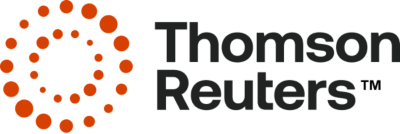For more than 30 years, Thomson Reuters has applied language models and AI to launch industry-leading innovations for its customers in areas such as legal research and tax compliance. The multinational technology corporation now plans to invest more than $100 million annually in AI capabilities and to develop a new generative AI experience across its product suite.
It’s no surprise, then, that Thomson Reuters chose AI and machine learning solutions internally to lift employee engagement, retain key talent and attract new hires in the global competition for technology workers.
Dalia Kendik, Head of Digital Human Resources at Thomson Reuters, describes how the company uses Workday, with AI and machine learning built into the core, to increase employee job satisfaction.

Kendik explains that employees want to perform fewer mundane tasks and focus on bigger priorities as part of a simplified and seamless digital work experience.
Focus on meaningful work
Thomson Reuters uses the Workday AI and machine learning technologies to automate routine tasks in natural workspaces, such as Microsoft Office or Slack. “Having AI handle the mundane, tedious work frees up time for our employees to focus on more meaningful, career-fulfilling goals,” Kendik says. Integrating Workday into applications that teams are already using makes adopting new capabilities easier.
When we use solutions that pair with the software and processes our employees already rely on, we simplify, rather than add another change they must adapt to.
Head of Digital Human Resources

Employees, online shoppers and streaming service subscribers expect personalisation from major brands in exchange for their loyalty. Kendik says they’re also looking for this level of personalisation at work in areas that include career growth and advancement.
Surfacing curated content
Thomson Reuters uses Workday AI and machine learning to surface curated professional content to employees, such as personalised matches to career advancement opportunities. It eases the burden for employees from having to hunt down those opportunities, simplifies internal recruiting, lifts worker engagement with their employer and saves everybody time.

Kendik says HR and IT must align on a vision and strategy to drive employee engagement. From software adoption to team communication, many workplace frustrations arise at the intersection of people and technology.
Focus and prioritise based on “pain points”
Kendik says HR and IT at Thomson Reuters are in sync on the vision and strategy to accomplish that goal, “which lets us focus and prioritise key areas driven by those pain points by employees.”
Data security and governance are other areas that require strong collaboration between HR and IT. “Those are areas that are top of mind from a risk perspective,” Kendik says. “And so we want to ensure that we’re in sync to always protect our data. These matters are table stakes that HR and IT can partner on.”
It’s creating a single front door so employees know where to go to find career or learning opportunities.
Head of Digital Human Resources

Information that helps employees do their jobs better needs to be readily available and very easy to access, Kendik says.
Creating a digital knowledge database
Kendik says Thomson Reuters is leveraging Workday to convert documents in traditional formats, such as PDFs, into knowledge-based digital articles. “Workday helped surface up the right knowledge articles to make searching for them easier and faster,” Kendik says.
When employees look for career or learning opportunities, Workday Assistant helps point them in the right direction. “Workday Talent, the career hubs and the new job hubs that are coming all help drive employee engagement,” Kendik says.

Kendik believes AI and machine learning will continue to be hot topics, especially in relation to recruiting and retaining top talent in a highly competitive and evolving business landscape.
Adopting a digital-first approach
To address those needs, Kendik says“You’re going to see technology companies adopt a digital-first, AI-enabled process in different areas. User design and employee listening are also key areas that will continue to be important for companies looking to keep and attract the best people.”

